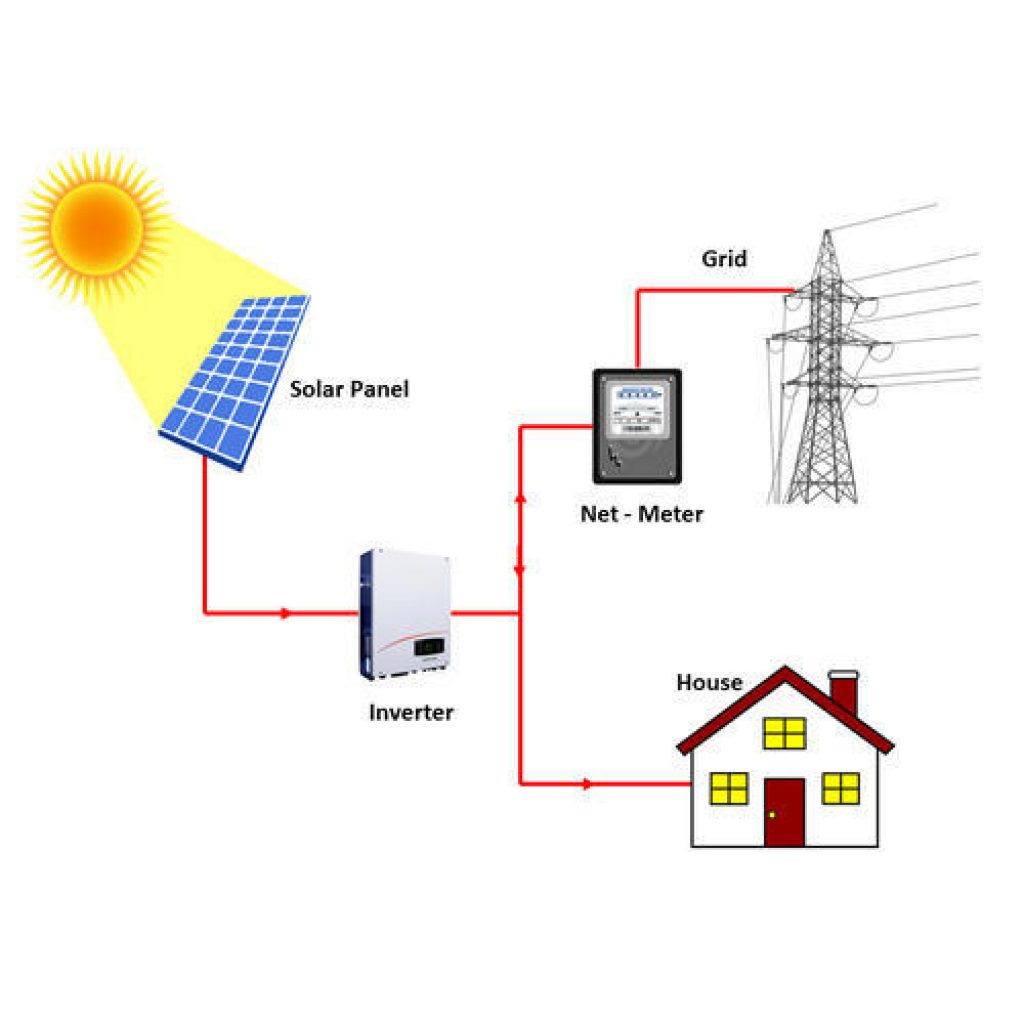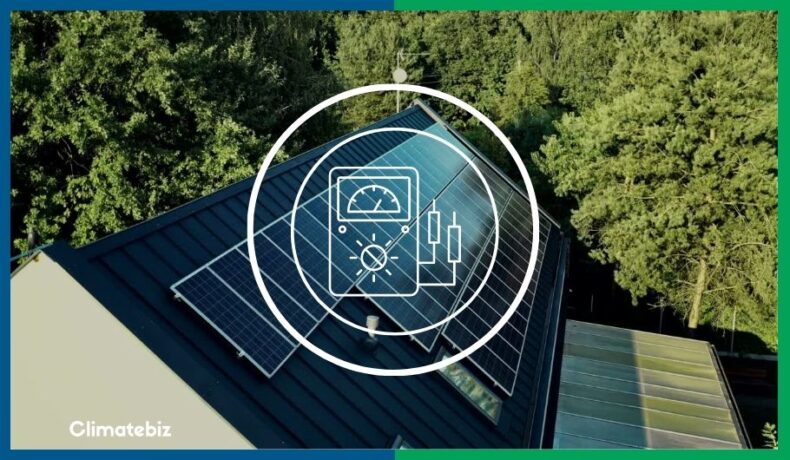Net metering — an innovative mechanism that helps solar adopters get the most out of their grid-tied systems!
Imagine, for a moment, that you’re looking to invest in a solar system. You’re almost entirely convinced that adding solar panels to your house will be worthwhile, but there are still some unanswered questions casting doubt on your decision.
“What happens during summer when my system’s energy production exceeds my household’s demand? And what about winter; will my panels even be able to produce much electricity during the colder months?”
The above are valid concerns. But fortunately for you, they are concerns that net metering addresses.
So, if you’d like to learn more about this process and its many benefits, keep reading!
Table of Contents
What Is Net Metering?
Net metering is an incentive scheme specially crafted for small-scale renewable energy producers (solar, wind, micro-hydro, etc.).This scheme allows consumers who produce some or all of their electricity to use it whenever they choose.
The net metering process occurs via energy credits accumulated by a consumer in an “energy wallet” of sorts.
Generally, a consumer will accumulate credits during high production months (summer) and withdraw the credits during low production months (winter).
How Does Net Metering Work?
Net metering turns you into a “prosumer” — a producer and consumer of electricity.
For net metering to work, you need the following:
- A renewable energy production system (solar, wind, etc.)
- Grid-tied inverter
- Connection to a utility company
- A bi-directional meter (provided by your utility company)

Source: SOLS Energy
The Process
First, your solar panels produce DC (Direct Current) electricity. Then, the inverter converts DC into AC (Alternating Current).
Thereafter, you have two options: consume your solar electricity at home or send it to your utility company via the bi-directional meter; this is when net metering occurs. The bi-directional meter records the electricity (in kWh) sent to the utility company.
These kilowatt-hours will be converted into credits on your utility bill to be used later (generally within one year).
Fortunately, net metering allows you to use electricity when your production levels are insufficient.
At the end of the month, the utility company calculates your balance between kWh consumed from the grid and kWh sent to the grid.
In some states, like California, you’ll get a credit of 1 kWh for each kWh sent to the electricity provider.
Other states have less favorable policies. For instance, 1 kWh sold to the utility company could only grant you 0.8 kWh credit.
What Are 5 Benefits Of Net Metering?
In 2022, net metering is the best energy program available to make your solar investment profitable.
The following are 5 benefits of net metering:
- Use 100% of your solar energy production
- Save money on your electricity bill
- No need for external battery storage such as a Powerwall
- Adds value to your house
- Contribute to reducing CO2 emission
1. Use 100% Of Your Solar Energy Production
Net metering allows you to use and sell up to 100% of your renewable electricity to a utility company.
Solar energy is a renewable energy source, and your production greatly depends on the solar power at your location, the time of the day, and the season.
Production & Consumption
- Daily: solar production is at its highest around noon (between 10 Am and 2 pm)
- Yearly: PV production is at its highest during the summer months (up to 3 times more energy produced vs. winter months).
- Domestic consumption: domestic electricity consumption is at its highest during morning and dinner time.
In Short
Your system will produce the most energy when your electricity usage is low — this is where net metering comes into play!
It allows you to consume the electricity you’ve produced and send off any excess to the utility company; you’re then rewarded with credits on your utility bill.
2. Save money On Your Electricity Bill
Net metering gives you credit on your electricity bill that you can use at any stage.
Solar: A Cheaper Method Of Energy Production
Solar is now the cheapest method of producing electricity.
Our 10 kW Solar System article demonstrated that a 10 kW system in California produces around 400’000 kWh over its lifetime (25 years).
Given the average installation cost of $23,000, the electricity produced will only cost roughly $0.06 kWh vs. the current price of $0.25 kWh in California.
Depending on your state’s net-metering rules, you might be paid at the end of the year (if your credit expires).
For instance, in California, the Net Surplus Compensation and Renewable Energy Credits (NSC and RECs) program compensates you for your excess production at a rate of $0.03 per kWh
3. No Need For External Battery Storage
Net metering is your virtual battery!
In a world without net metering, you’d need a solar battery to store your excess electricity; otherwise, you’d waste your energy production.
But with net metering, you can:
- “Charge” your credit by sending your production to the grid.
- “Discharge” any time you need electricity, and your solar system is not producing enough (at night).
As net metering is set on a yearly basis, you can even compensate for low production during the winter months with the credits you received during the summer months (production excess.
4. Increase The Value Of Your Property
A home with a grid-tied solar system that includes net metering can sell for up to 4% more than a house without a solar panel system.
A recent study from NREL (National Renewable Energy Laboratory) showed that home values increase by $20 for each $1 saved on your utility bill.
For example, if your savings are $500 a year (with a 2 kW system in California), your home value increases by:
20 x 500 = $ 10,000 (increase)
5. Contribute To Reduced CO2 Emission
Net metering allows you to share your renewable energy production with the electrical grid. Essentially, other customers without solar panels can benefit from your solar production.
As such, this mechanism is great for your wallet and the planet, as you’ll contribute to the global electricity mix by adding 100% renewable electricity.
In the end, you’re helping to mitigate the effect of Climate Change by reducing CO2 emissions.
In the U.S., solar electricity only generates 30g of CO2/kWh vs. 385g of CO2/kWh from regular electricity production.
Final Thoughts
Net metering is the cornerstone of solar electricity production at home; it makes solar electricity profitable without the need for storage batteries.
What’s more, this mechanism becomes your energy wallet where you can store your energy credits (excess of production) and withdraw your credits at any time (consuming electricity from the grid).
Net metering will play an essential role alongside Smart Grids, where thousands of small renewable energy producers will gather into virtual energy producer cooperatives.
It’s safe to say that the future of energy is decentralized!

